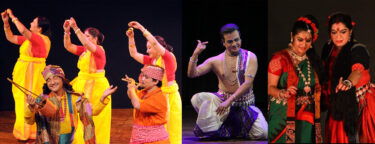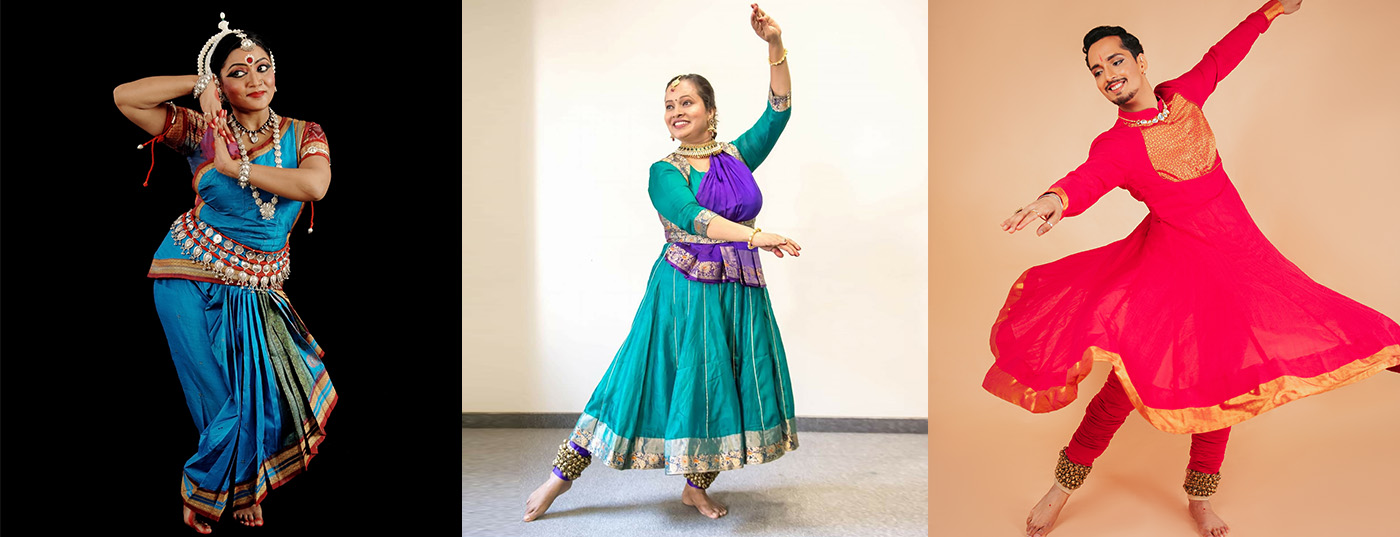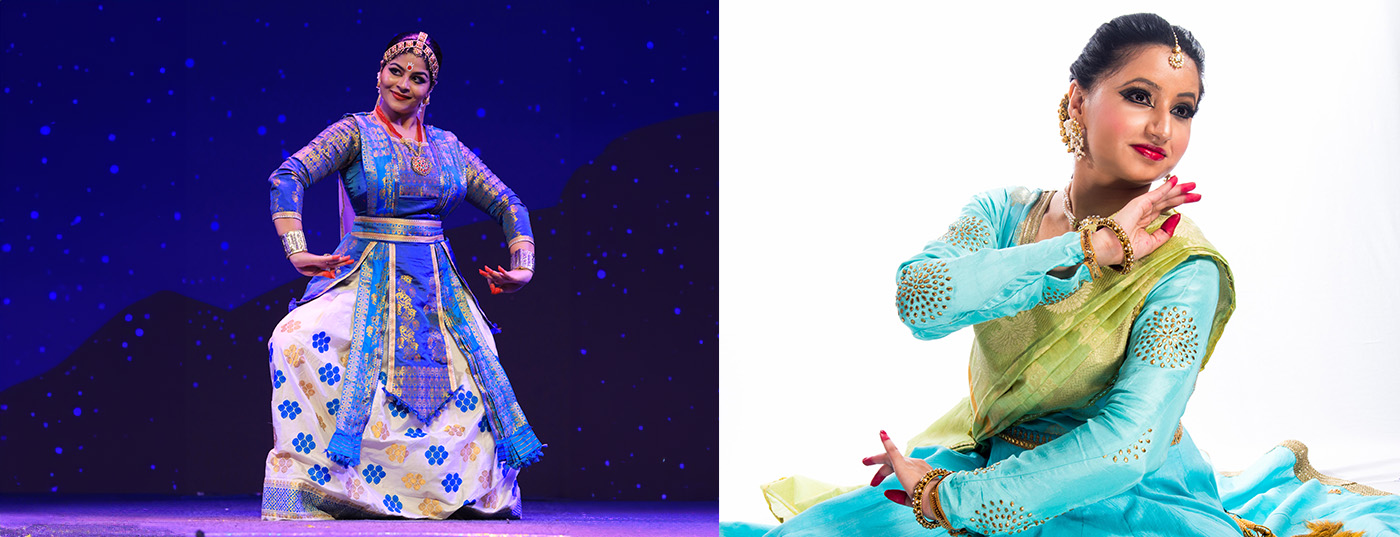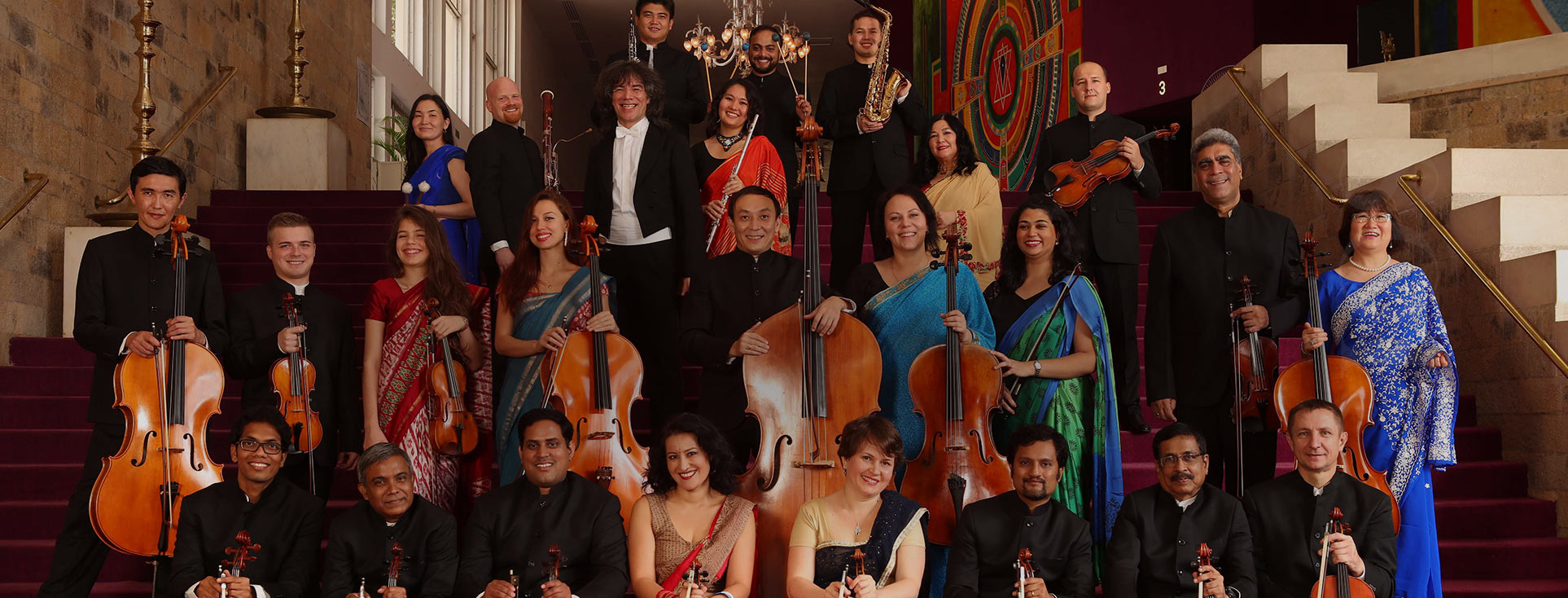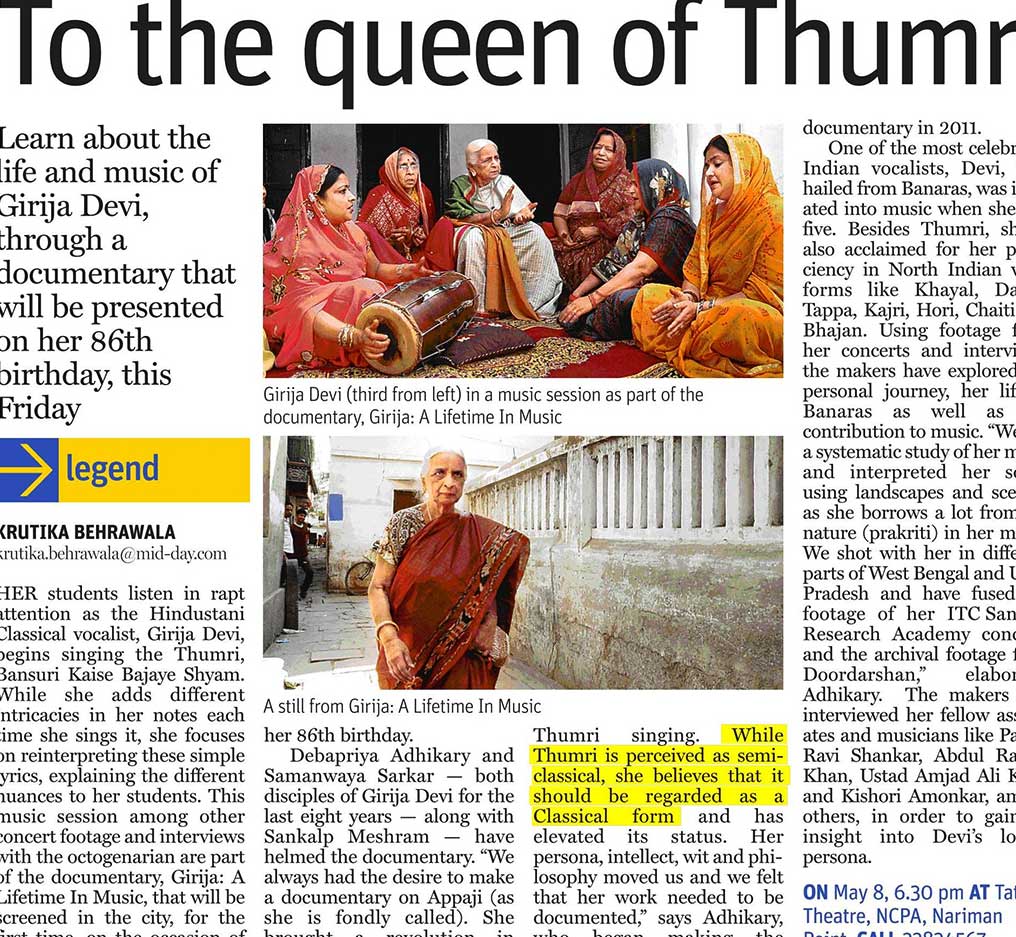-
Venue
Experimental Theatre -
Date Time
12 May 2024 | 5:00 pm
-
Age Limit
6+ -
Member Price
Rs.360 & 270/- -
Non Member Price
Rs.400 & 300/- -
Duration
120 mins
Event Details
Balmiki Pratibha
Tushar Guha’s Nrityanjali
Tridhara
Rajib Bhattacharya & Troupe
Chandalika
Swapnokalpa Dasgupta, Sarmishtha Chattopadhyay & Troupe
An NCPA Presentation
The NCPA will host an evening of dance performances celebrating the Nobel laureate, Rabindranath Tagore during his birthday month. The evening will showcase performances based on three of Tagore’s works – Balmiki Pratibha Tridhara and Chandalika.
Dr. Tushar Guha’s Nrityanjali is a premier institute in India founded by Dr. Tushar Guha, a long standing veteran in the field of music, dance and dramatics. Nrityanjali specializes in performing arts, education, personality development, social and management services and celebrated Diamond Jubilee year in 2022-2023.
Dance Drama Balmiki Pratibha written by Rabindranath Tagore is based on the legend of Ratnakar the Thug who later became Sage Balmiki and composed Ramayana, a Hindu epic. Composed in 1881, it was first performed at the Jorasankor Thakur Bari on 26 February 1881. Tagore himself essayed the role of Balmiki. The music is a fusion of classical, folk and European strains. The story narrates how Ratnakara, a robber chief turns into a great poet by the grace of Saraswati, the goddess of wisdom.
Balmiki Pratibha is directed by Dr. Tushar Guha, who has devoted more than 70 years in the field of performing arts as a dancer, singer, lyricist, music composer, writer, choreographer and actor. His vast repertoire as a Dancer and Choreographer includes expertise in Kathak, Folk Dance, Dance Drama, Rabindrik Nritya, Creative Dance & Western Dance. He received the Best Child Actor Award in 1956 by Mahabodhi Society for playing the role of Gautam Buddha and received the Best Dancer Award from Lion’s International in 1985. In 1987 on the occasion of Tagore’s 125 th Birth anniversary Dr.Tushar Guha played the lead role in Tagore’s Dance Drama Tasher Desh presented by BMC and TMC. In 1997 he choreographed, directed and played the Lead role in Hima Devi’s Theatre – Dance Reach for the Sun to celebrate 50 years of Indian Independence. Two of his major dance productions include Geet Ramayan 50 when he was selected by the Government of Maharashtra to present and choreograph Geet Ramayan in the dance format for the first time in 2005. The second major production is his Dance Drama Sri Chaitanya Mahaprabhu first performed in 2005.
Being a renowned psychologist & artiste, his PhD from USA on ‘Utilising the elements of performing arts in day to day life along with Psychology ‘ is conceptually unique, much sought after and also presented on TEDX.
Rajib Bhattacharya received his initial training from Sharmila Biswas and moved on to complete his M.A. in Odissi from Rabindra Bharati University, Kolkata. His eagerness for specialisation in Odissi brought him to SRJAN where he received training under the able guidance of Kelucharan Mohapatra and his son, Ratikant Mohapatra. He has also trained in the Mahari form of dance from Sashimani Debi and Parasmani Mahari. Bhattacharya is a recipient of the national scholarship under from the Dept. of Culture, Ministry of Human Resource Development, Government of India and the ‘Guru Kelucharan Mohapatra Yuva Prativa Samman’ award. He is a ‘Top’ grade artiste of Doordarshan Kendra, New Delhi, an empanelled artiste of the ICCR and Assistant Secretary of the Odissi Dancers’ Forum, Kolkata. He is Artistic Director of Srijan Chhanda and has performed in prestigious dance and music festivals In India and abroad.
Tridhara is an ode to the three doyens of Odissi through choreography based on Tagore’s songs. Pankaj Charan Das was the master of the Mahari style of Odissi popularised by the devdasis who dedicated their presentations to Lord Jagannath through lasya (soft and delicate feminine aspect) centric movements and postures. Debaprasad Das based his style largely on taandva (vigour and strength or male aspect) expressed through rhythm and nuances of words and their sound (sabda swar pato). The legendary Kelucharan Mohapatra, credited with reviving Odissi, was deeply influenced by nature while evolving his style of Odissi. In Tridhara, which signifies the confluence of three rivers as they merge with the ocean, Bhattacharya explores the grandeur of the three unique styles of Odissi dance.
Dr. Swapnokalpa Dasgupta is an Odissi dancer, teacher and arts manager residing in Mumbai. She is a student of the illustrious Kelucharan Mohapatra and his students. Additionally, Dasgupta is the Head of Dance at the NCPA for the past 11 years. She is a recipient of many awards including the prestigious Ustad Bismillah Khan Yuva Puraskar from the Central Sangeet Natak Akademi and the Kanak Nartan Puraskar from Dr. Kanak Rele’s Nalanda along with a doctorate in Dance from Dr. Gangubai Hangal Performing Arts University in Mysore.
Dr. Sarmishtha Chattopadhyay is the proprietor of Angik Dance Academy, operating from Navi Mumbai for the last 12 years. The institution teaches Odissi as well as Rabindrik and folk dances. Angik Dance Academy has been instrumental in consistently delivering numerous notable performances in Mumbai as well as across the country. Chattopadhyay holds a doctorate in Dance from Dr. Gangubai Hangal Performing Arts University in Mysore.
The dance-drama Chandalika was recreated by Tagore in 1938 from an earlier work, a drama named Chandalini and later renamed Chandalika. The theme of this dance-drama was to uphold humanism over the caste system and to spread the message of love at a time when the national movement in the country was gaining momentum. The dance-drama revolves around the story of a mother and a daughter from a lower caste. Ananda, a Buddhist monk, accepts water from the hands of a dejected Chandalika, who was shunned by society for her low birth. Chandalika, in love with the bhikshu, convinces her mother to bring him back to her by using black magic. As a cursed and exhausted Ananda is pulled back to her, she realises what love is and what it is to let go.
Box Office now open.
